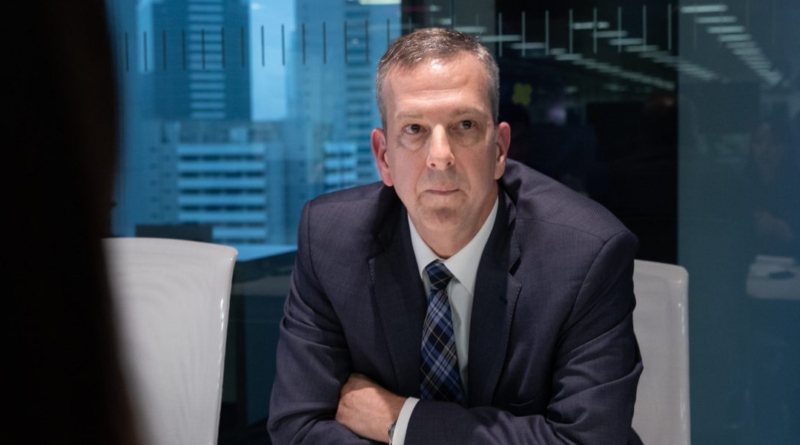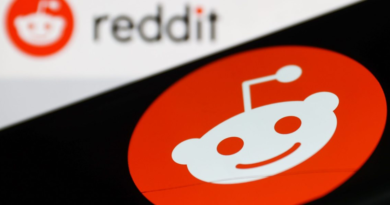Hong Kong is seeing growing internet censorship, and some American companies are using burner phones when visiting, says a top US diplomat
The top US diplomat in Hong Kong sounded the alarm over growing internet censorship in the city, underscoring fears China’s crackdown on freedoms is diminishing the hub’s appeal as a global finance hub.
In his first interview since taking up the post in 2022, US Consul General Gregory May cautioned that connectivity issues and data security concerns had prompted some American companies to use burner phones and laptops when visiting the once free-wheeling enclave.
“Hong Kong is starting to go down the slope of trying to take certain content off the internet and blocking certain websites,” he told Bloomberg News on Thursday. “It is kind of a slippery slope once you start that internet censorship. Where does that end?”
The government’s campaign to wipe Glory to Hong Kong, a song popularized during 2019 anti-government protests, from the city’s internet has highlighted operational risks for Western tech giants such as Alphabet Inc.’s Google and Meta Platforms Inc. The city’s internet service providers have also blocked access to a small number of websites, including from the UK-based rights group Hong Kong Watch. Officials have defended such actions on national security grounds.
While Hong Kong’s internet remains largely free, initial curbs have sparked concern the tight controls of mainland China, where many Western platforms are blocked and censors routinely scrub content critical of the government, could spill over into Hong Kong.
The American diplomat’s criticism comes as Hong Kong tries to bolster its position as an international business center and attract tourists to boost its flagging economy. The city’s global reputation took a hit after years of pandemic isolation drove an exodus of talent and a sweeping crackdown on political freedoms turned it into a flashpoint in fraught relations between the world’s two superpowers.
“Releasing Jimmy Lai and these other people facing jail for political expression — releasing them would do more to improve Hong Kong’s image than all the financial summits and tourism promotion campaigns put together,” May said. Pro-democracy activist Lai, 76, is facing life in prison under a national security law imposed by Beijing in 2020.
The Hong Kong government on Friday night condemned May’s remarks as “scaremongering” and said its efforts to safeguard national security will protect the rights of businesses in the city.
May, a career diplomat who worked as a journalist before serving in mainland Chinese cities Shenyang and Guangzhou, called on the government to reassure businesses it was committed to a free and open internet and business-friendly data controls.
“We definitely want to have a better relationship with Hong Kong. We just need Hong Kong to stop the slide,” May said, referring to the city’s restrictions on freedoms. “While we want the economic relation to continue to do well, frankly, our priority is more in the political space.”
The US has sanctioned the city’s leader John Lee over President Xi Jinping’s clampdown on dissent, while Beijing has accused Washington of orchestrating mass protests against Communist Party influence that rocked the hub in 2019. Congress last year passed a bill that could shut down Hong Kong’s three economic and trade offices in the US if the financial hub isn’t deemed significantly autonomous from Beijing.
Hours before May’s interview, the US State Department raised concern over the city’s proposals for a new domestic security law, saying it adopts “broad and vague” definitions of state secrets and external interference that could be used to silence critics. The local measure adds to the China-drafted national security law and has stirred fears over a chilling effect on open discussion of economic and policy issues.
“The last thing Hong Kong needs after the NSL are more, very broad, new crimes,” May said. He declined to say what the US government would do if Hong Kong passes the law.
The city’s government on Thursday called the State Department comments “irresponsible” and an interference in the internal affairs of China. The Chinese foreign ministry on Friday said the new law targets a “handful of criminals” harming national security and will protect Hong Kong residents’ rights and freedoms.
Authorities have vowed to press ahead with the Article 23 legislation mandated in its mini-constitution after ending a month-long consultation process Wednesday. Lee’s administration said it had received “majority support from the public” and would strive to finalize a bill as soon as possible.
The US government “actively decided not to participate” in consultations, May said, adding it was up to the Hong Kong people to provide feedback. While sanctions on Lee have curtailed his engagement with the leader, the US diplomat said he’s used other channels to communicate with city officials.
Despite the challenges, May said he believes the former British colony retains important business advantages. Relations with the US could improve, he said, if officials honor the 1984 agreement on the handover of Hong Kong that promised the city a high degree of autonomy from Beijing for 50 years.
Still, he warned that American companies could face blowback at home because of the city’s clampdown on dissent, which has included placing bounties on the heads of overseas activists living in the US.
“If you are operating in Hong Kong, US firms have to be mindful of their reputation on Capitol Hill,” he said. “Some of them are rightly concerned about coming under the cross-hairs in the United States because Hong Kong is doing things like bounties that show a very negative side — and the US is reacting to that.”
— With assistance from Philip Glamann




